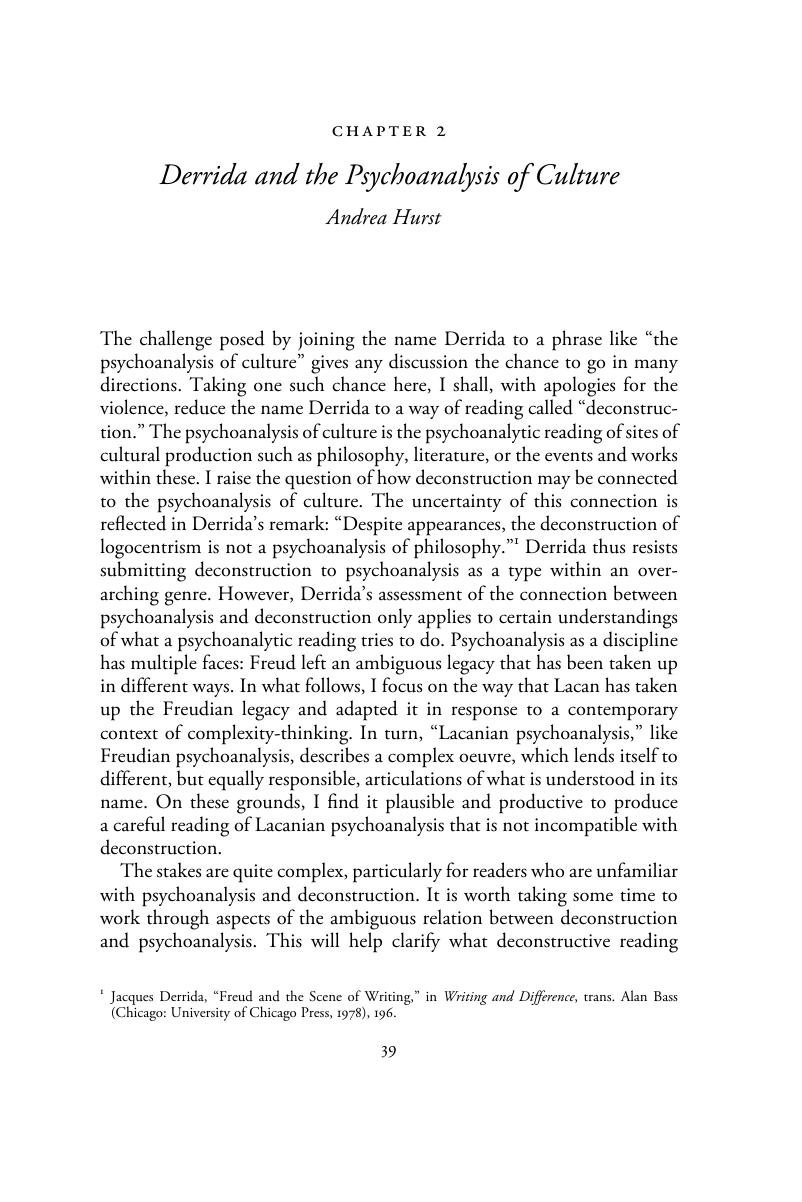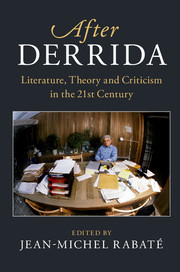Book contents
- After Derrida
- After Series
- After Derrida
- Copyright page
- Contents
- Contributors
- Introduction
- Part I Frames
- Chapter 1 The Instant of Their Debt
- Chapter 2 Derrida and the Psychoanalysis of Culture
- Chapter 3 Derrida and Sexual Difference
- Chapter 4 Derrida Queries de Man
- Part II Focus
- Part III Futures
- Index
- References
Chapter 2 - Derrida and the Psychoanalysis of Culture
from Part I - Frames
Published online by Cambridge University Press: 11 May 2018
- After Derrida
- After Series
- After Derrida
- Copyright page
- Contents
- Contributors
- Introduction
- Part I Frames
- Chapter 1 The Instant of Their Debt
- Chapter 2 Derrida and the Psychoanalysis of Culture
- Chapter 3 Derrida and Sexual Difference
- Chapter 4 Derrida Queries de Man
- Part II Focus
- Part III Futures
- Index
- References
Summary

- Type
- Chapter
- Information
- After DerridaLiterature, Theory and Criticism in the 21st Century, pp. 39 - 57Publisher: Cambridge University PressPrint publication year: 2018



